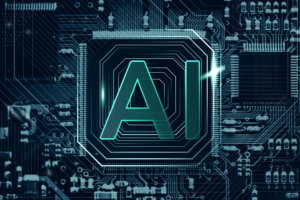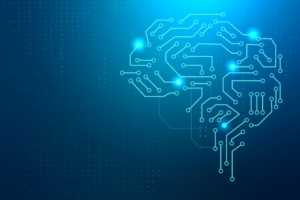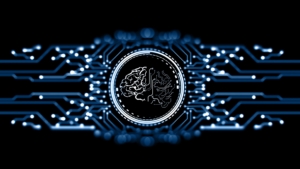The Role of Artificial Intelligence in Cybersecurity
Tech
As we celebrate Cybersecurity Awareness Month, it’s crucial to recognize the ever-evolving landscape of digital threats and the tools we employ to defend against them. Artificial Intelligence (AI) has emerged as a powerful ally in the fight against cyber threats in this age of rapid advancement in technology. In this blog article, we’ll look at the tremendous influence of AI on cybersecurity and how it’s changing how we defend our digital lives.

The Growing Cybersecurity Challenge
Cyberattacks are growing in frequency and sophistication. The stakes have never been higher, from ransomware attacks crippling businesses to data breaches compromising personal information. Traditional security measures often struggle to keep up with these evolving threats.
AI-Powered Threat Detection
Artificial Intelligence is revolutionizing cybersecurity by enhancing threat detection and response. AI-powered systems can analyze vast amounts of data in real time, identifying anomalies and potential threats more effectively than human operators. Machine learning algorithms can adapt and improve their detection capabilities over time, staying one step ahead of cybercriminals.
Behavioral Analytics
One of the key strengths of AI in cybersecurity is its ability to monitor user and network behavior. AI systems can establish baselines of normal behavior and flag any deviations. For example, if an employee suddenly attempts to access sensitive data at an unusual time or from an unexpected location, AI can detect this as a potential security breach and trigger alerts.

Reducing False Positives
AI also plays a vital role in reducing the number of false positives, which can overwhelm security teams. By using AI to filter and analyze data, security professionals can focus their attention on genuine threats rather than chasing down countless false alarms.
AI in Email Security
Phishing attacks remain a significant cybersecurity concern. AI-driven email security systems employ natural language processing and pattern recognition to identify phishing attempts, even when they mimic legitimate communications. This proactive approach helps prevent users from falling victim to phishing schemes.
Automation and Response
Beyond detection, AI can automate responses to cyber threats. For instance, if a breach is detected, AI can isolate affected systems, update security protocols, and even mitigate damage by rapidly responding to incidents.
Challenges and Ethical Considerations
While AI holds great promise in cybersecurity, it also presents challenges. One concern is the potential for AI to be used by cybercriminals to create more sophisticated attacks. Ethical considerations, such as data privacy and the responsible use of AI in surveillance, also come into play.

Conclusion
Artificial Intelligence is undeniably a game-changer in the world of cybersecurity. As we commemorate Cybersecurity Awareness Month, let’s appreciate AI’s role in safeguarding our digital world. By harnessing the power of AI-driven threat detection, behavioral analytics, and automated responses, we can stay ahead of cyber adversaries and fortify our defenses in this ever-evolving landscape of digital threats.
In the coming years, we can expect AI to continue to evolve, helping us adapt to new and increasingly sophisticated cyber threats. As technology progresses, so too must our commitment to cybersecurity awareness and the responsible use of AI to protect our online lives.



